Publications
Articles, publications, books, tools and multimedia features from the U.S. Institute of Peace provide the latest news, analysis, research findings, practitioner guides and reports, all related to the conflict zones and issues that are at the center of the Institute’s work to prevent and reduce violent conflict.
USIP Launches Roundtable Series with Asia-Pacific Naval Attaches
The U.S. Institute of Peace (USIP) on November 7 launched what will be a series of discussions drawing together naval attachés representing Asia-Pacific countries in Washington with regional and U.S. policy experts. The aim is to help the naval attachés better understand U.S. policy-making and analytical perspectives, helping their governments to shape informed responses to U.S. strategy in a strategically vital and changing region that is the locus of numerous security, diplomatic and econom...
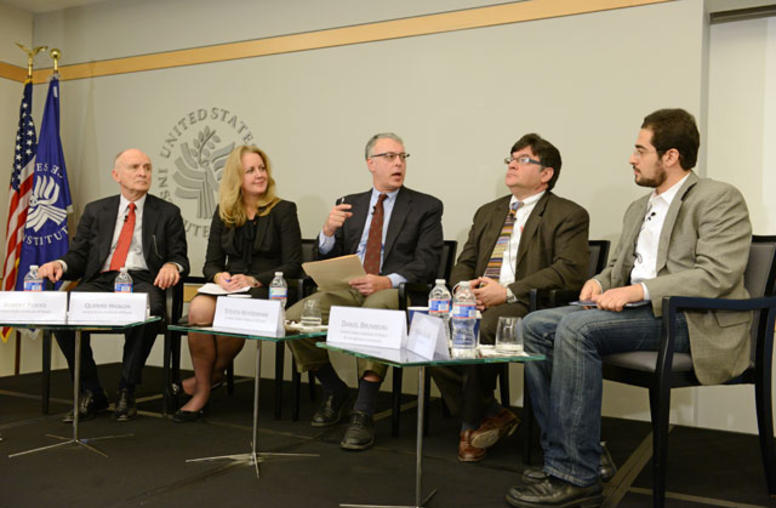
USIP Specialists Call Security Sector Reform in North Africa Difficult but Essential
On November 5, USIP convened a panel of experts to discuss the array of difficulties in restructuring military, police and intelligence agencies that persist after the initial optimism with demise of previous regimes.
Counting Every Casualty Worldwide
In 2010, In keeping with its mandate of promoting peacebuilding tools and capacities, USIP awarded a grant to Oxford Research Group (ORG) to initiate and develop a new international network of casualty recording practitioners to define and test a generalizable framework for enumerating the casualties of armed conflict. On October 22, 2012, Elizabeth Minor, the principal ORG researcher on the two-year study, briefed an invite-only audience at USIP on the report, “Towards the Recording of Ever...
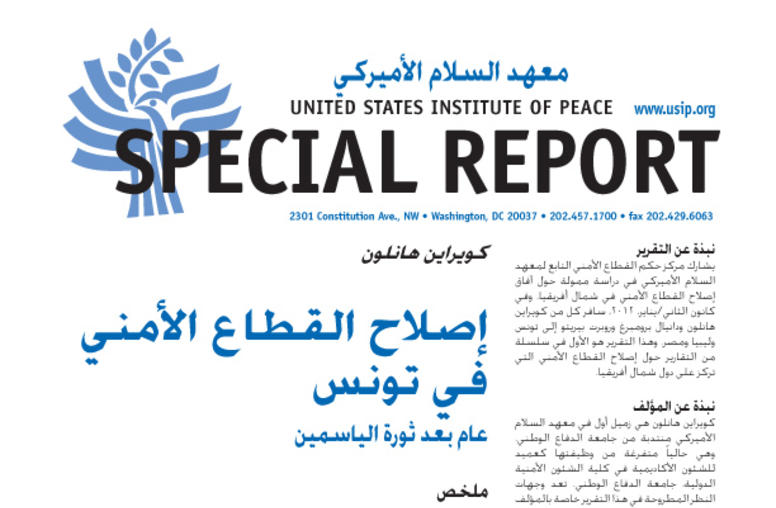
Security Sector Reform in Tunisia (Arabic Version)
The long-term success of Tunisia’s new democracy hinges on efforts to reform its security sector. Most in need of reform are the police, gendarme, and interior ministry.
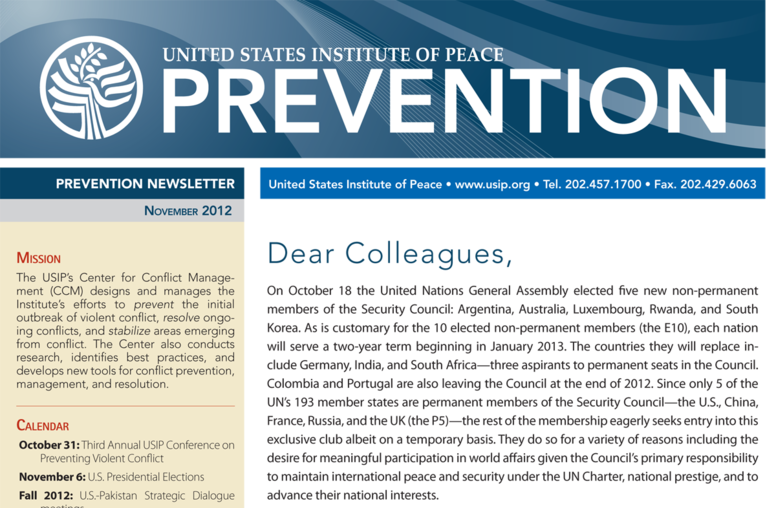
USIP Prevention Newsletter - November 2012
The November 2012 Prevention Newsletter features a spotlight on the Network of Iraqi Facilitators (NIF) in Ninewa, Iraq: A team of three conflict resolution professionals from the NIF took the initiative to bring sectarian leaders to the table to negotiate a peaceful end to the cycle of violence plaguing Ninewa.
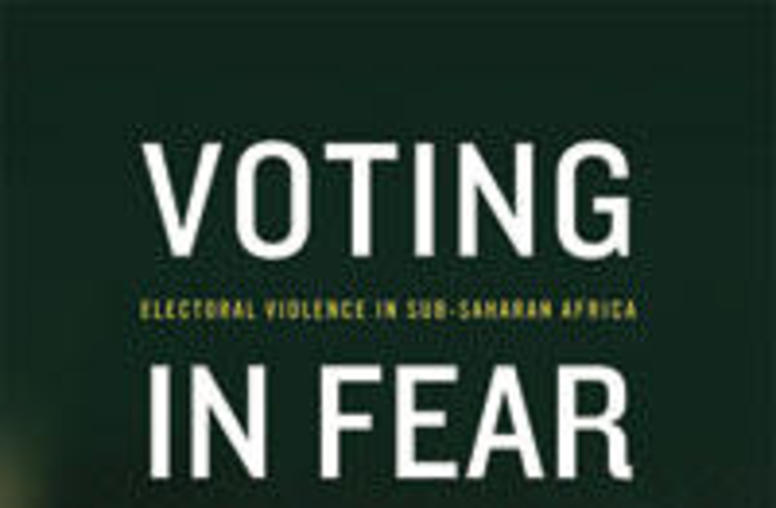
Voting in Fear
In Voting in Fear, nine contributors offer pioneering work on the scope and nature of electoral violence in Africa; investigate the forms electoral violence takes; and analyze the factors that precipitate, reduce, and prevent violence. The book breaks new ground with findings from the only known dataset of electoral violence in sub-Saharan Africa, spanning 1990 to 2008. Specific case studies of electoral violence in countries such as Ghana, Kenya, and Nigeria provide the context to further un...
USIP Disaster Reservist Supports Hurricane Response
A USIP employee, Tracey Brown, has been deployed to assist with the response to Hurricane Sandy that hit the East Coast. Brown, a USIP contracts assistant, is a Federal disaster reservist member of the Federal Emergency Management Agency’s Federal Surge Capacity Force. Her deployment will last 2-3 weeks unless the assignment is extended.

Truth in Reporting: Media and Communications in Conflict
From left: Onnik Krikorian, Anand Varghese, Len Lidov.

Adapting Agricultural Extension to Peacebuilding
On May 1, 2012, the Roundtable on Science, Technology, and Peacebuilding – a partnership between the U.S Institute of Peace and the National Academy of Engineering – held a workshop in Washington, DC, to explore whether and how extension activities could serve peacebuilding purposes. This summary provides a synopsis of the day’s discussion.
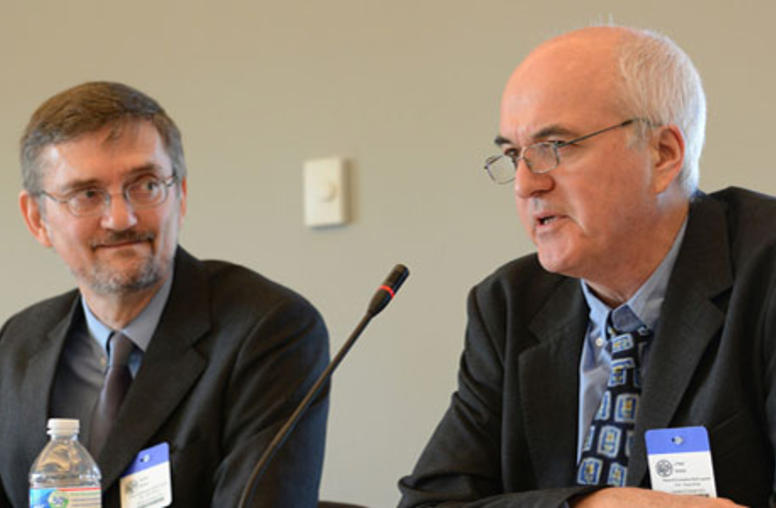
New USIP Book on ‘Peace Economics’ Launched at Institute
Creating sound economic policy and a stable macroeconomic framework is essential to societies recovering from violent conflict, yet few practitioners have the background needed to apply economic concepts effectively. The two authors of "Peace Economics: A Macroeconomic Primer for Violence-Afflicted States" describe their effort to provide an overview of practical ways that sound macroeconomic policies can help build stability in states affected by violent conflict.